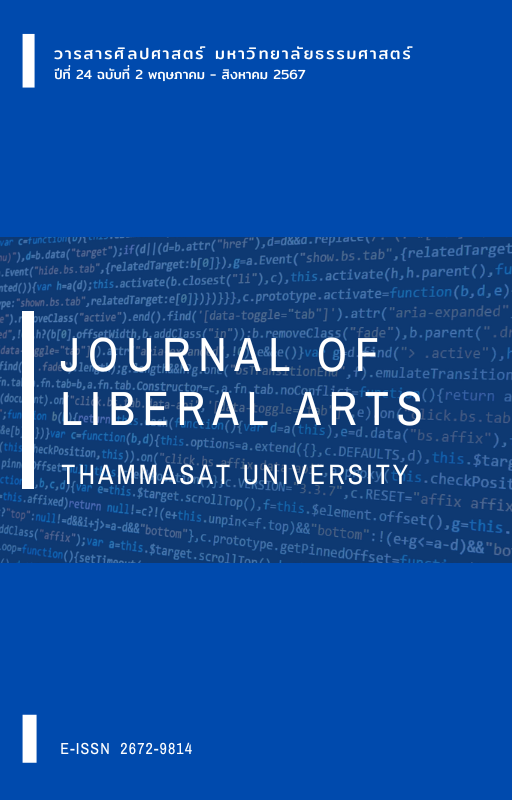การบังคับเกษียณในฐานะที่เป็นการเหยียดอายุ : ข้อโต้แย้งทางปรัชญา
Main Article Content
บทคัดย่อ
บทความนี้โต้แย้งว่าการบังคับเกษียณในระบบราชการและในระบบมหาวิทยาลัยคือการเหยียดอายุ (ageism) เพราะเป็นการคิดว่ามีอายุกลางสำหรับทุกคนที่เมื่อเข้าถึงอายุนี้แล้วจะเรียกว่า “ผู้สูงอายุ” และเมื่อเป็น “ผู้สูงอายุ” แล้ว รัฐจะสามารถรู้ได้ว่าคนในกลุ่มนี้มีสมรรถภาพเหมือนกันหมดในการทำงาน นัยของความคิดนี้คือว่า ผู้ที่ถูกมองว่าสูงอายุจะมีสมรรถภาพในการทำงานด้อยลงกว่าเมื่อก่อน และด้อยกว่าบุคคลอื่นที่อายุน้อยกว่า อีกทั้งยังมีการตั้งสมมติฐานว่างานทุกงานเหมือนกัน เช่นตำแหน่งที่ต้องใช้สมรรถนะทางกายภาพมาก เช่น นักผจญเพลิง ตำรวจ ทหาร แพทย์ที่ต้องทำหัตถการในการผ่าตัด นักบินและผู้ควบคุมหอการบิน ก็ต้องใช้สมรรถนะทางกายภาพเท่ากับงานทางวิชาการ จึงพูดได้ว่างานทุกงานสามารถบังคับเกษียณได้ในอายุเดียวกันหมด ยิ่งไปกว่านั้น ยังมีการอนุโลมงานบางประเภทให้สามารถทำได้เกินกว่าอายุ 60 ปี โดยไม่มีคำอธิบายว่าต่างกับงานอื่นในลักษณะเดียวกันอย่างไร เช่น ผู้พิพากษา อัยการ ข้าราชการพลเรือนในพระองค์และสมุหราชองครักษ์ บทความนี้แสดงว่างานบางอย่างเช่นการเป็นนักวิชาการ โดยยกตัวอย่างนักปรัชญา ผู้ทำงานทำงานได้ดีขึ้น ไม่ได้ด้อยลงเมื่ออายุมากขึ้น ข้อสันนิษฐานเกี่ยวกับสมรรถภาพการทำงานแบบเหมารวมจึงผิดจากข้อเท็จจริง บทความนี้พิจารณาประเด็นการบังคับเกษียณในฐานะที่เป็นข้อโต้แย้งทางปรัชญา เกี่ยวพันกับหลักความเท่าเทียมกันและสิทธิเสรีภาพของพลเมือง ชี้ให้เห็นว่าข้อโต้แย้งที่สนับสนุนการบังคับเกษียณเป็นข้อโต้แย้งที่ไม่อาจแสดงให้เห็นได้ว่าสมเหตุสมผล ดังนั้นจึงควรพูดได้ว่าการบังคับเกษียณเป็นสิ่งผิดจริยธรรม ผิดหลักความเท่าเทียมกันของพลเมือง เป็นการเลือกปฏิบัติ และเป็นการแสดงออกของการเหยียดอายุ
Downloads
Article Details

อนุญาตภายใต้เงื่อนไข Creative Commons Attribution-NonCommercial-NoDerivatives 4.0 International License.
เอกสารอ้างอิง
กนกลักษณ์ จุ๋ยมณี. (2563). การขยายเวลาเกษียณอายุราชการ. วารสารวิชาการนิติศาสตร์ มหาวิทยาลัยทักษิณ, 8(10), 45-63.
พระราชบัญญัติบำเหน็จบำนาญข้าราชการ พ.ศ. 2494. (11 เมษายน 2494). ราชกิจจานุเบกษา. เล่ม 68 ตอนที่ 24 ฉบับพิเศษ. หน้า 1.
วรวรรณ ชาญด้วยวิทย์. (25 สิงหาคม 2016). ผ่ามุมมองมาตรการรับมือสังคมผู้สูงวัยผ่าน ‘ดร.วรวรรณ’ ที่ปรึกษาฯ ทีดีอาร์ไอ. http://tdri.or.th/2016/08/2016-08-24/
สราวุธ ไพฑูรย์พงษ์. (19 พฤษภาคม 2016). การขยายอายุเกษียณราชการ. สถาบันวิจัยเพื่อการพัฒนาประเทศไทย (ทีดีอาร์ไอ). http://tdri.or.th/2016/05/retirement-age-20160520/
Anton, A. L. (2016). How long should people work? The debate over retiring age. In G. Scarre (Ed.), The palgrave handbook of the philosophy of aging (pp. 494-515). Palgrave Macmillan.
GOV.UK. (2015). Equality act 2010: Guidance. https://www.gov.uk/guidance/equality-act-2010-guidance
Jecker, N. S. (2023). The dignity of work: An ethical argument against mandatory retirement. Journal of Social Philosophy, 54(2), 152-168. https://doi.org/10.1111/josp.12471
Karpf, A. (2015). How to Age. Picador.
Macnicol, J. (2006). Age discrimination: A historical and contemporary analysis. Cambridge University Press.
Mill, J. S. (1998). The subjection of women. In J. Gray (Ed.), On liberty and other essays (pp. 469-581). Oxford University Press.
Mill, J. S. (2002). Utilitarianism. In The basic writings of John Stuart Mill (pp. 232-301). The Modern Library.
Nussbaum, M. (2010). Not for profit: Why democracy needs the humanities. Princeton University Press.
Nussbaum, M., & Levmore, S. (2017). Aging thoughtfully: Conversations about retirement, romance, wrinkles, & regrets. Oxford University Press.
Overall, C. (2006). Old age and agism, impairment and ableism: Exploring the conceptual and material connections. NWSA Journal (National Women Studies Association Journal), 18(1), 126-137.
U.S. Department of Labor. (n.d.). Age discrimination. Retrieved March 1, 2024, from http://www.dol.gov/general/topic/discrimination/agedisc


